出处: 2021 ByteCTF
原题链接: 链接:https://pan.baidu.com/s/1-IZPcIzGRx1NvMzLBCtHAg
提取码:1111
时间: October 16, 2021
考点: Golang, Lua
难度: 困难
推测考点
- 上来直接往 IDA 里面一拖
- 根据特征,确定这是 Golang。但是出题人对所有的函数名称都做了混淆,全部函数恢复的符号都是错误的…非常不好办(考点一:无符号 Go 逆向)
- 观察汇编时函数的调用约定,发现这又和传统的 Golang 不一样(采用了大量寄存器来传递参数)。于是打开 Google,搜索后发现这是 Go1.17 新引入的调用约定。因此后续所有 Go 相关的,辅助我们判断的程序都应该使用 Go1.17+ 进行编译
- 在 IDA 中全局搜索&浏览字符串,发现有 luago 的字样。网上搜索发现这是拿 Go 写的 Lua 解释器(考点二:Lua 逆向)
- 因为这并不是一个完整的开源项目,所以只能自己手动筛选,尽量选一个实现上较为完整的。这里选用了这个版本 zhengted/luago: golang实现Lua (github.com)
具体分析
解决无符号的问题
- Go + 没法恢复符号,我真的是吐了。不过既然前面已经推测出了 Go 使用的版本以及它调用的库(luago),可以尝试使用 BinDiff 恢复一下符号
- 下载并编译 luago,拖到 IDA 里面分析一遍然后保存 IDB 文件,然后在题目的窗口中调用 Bindiff 插件进行比对
- 。。。不知道出题人咋处理的,所有 luago 库相关的函数几乎都没有识别出来(可信度低的就无视就好了,否则容易误导自己),只是把 Go 的 runtime 大部分都识别出来了
- 重新分析程序的行为。发现程序运行的时候有如下提示字符串打印
- 根据交叉引用定位到了
main函数 - 此时已经可以通过结合动态调试对关键逻辑进行分析了。考点一基本完成
通过动调梳理程序逻辑
- 设置调试器参数如下
- 此处的寄存器中有通过参数传递的文件名
- 不断步过&步进,调到此处发现了亦或的逻辑
- 尝试对题目附件的文件进行亦或 0x55 解密,得到
repaired.lua,里面含有大量明文字符串 - 打开前面下载好的 luago 库,在此处发现了对于 Lua header 的定义
- 与
repaired.lua进行对比,发现头部除了前面 5 个字节不一致,后面都是一样的,所以手动对repaired.lua的头部进行修复
with open("new_lang_script.out", "rb")as f:
f.seek(5)
data = f.read()
with open("repaired.lua", "wb")as f:
f.write(b'\x1bLua\x53'+bytes([i ^ 0x55 for i in data]))
- 此时已经基本理清了程序的逻辑
- 读取 argv 指定的 bytecode 文件
- 亦或 0x55 解密
- 解释执行
Lua 逆向
- 然后试图调用 luago 运行程序,直接 fatalpanic。。。
func main() {
runCode()
}
func runCode() {
ls := state.New()
ls.OpenLibs() // 开启标准库
ls.LoadFile("repaired.lua") // 加载文件
ls.Call(0, -1)
}
- 果然没有那么简单。于是开始阅读 luago 的源码,发现虚拟机的
for loop在此处实现。在此处下断点,动调几遍你就会发现,每次执行的 Bytecode 完全驴唇不对马嘴,这时候猜测出题人魔改了 Lua Bytecode 的顺序 - 发现这里是从
Opcodes数组中获取的具体要执行的action,于是进而查看Opcodes数组的定义 - 猜测在题目附件中应该也存在这样的数组。于是继续动调,定位到了原程序中的
Execute函数及Opcode数组 - 这时候发现出题人是真狠。。。把所有
Opcodes对应的字符串描述都给换成NONNAME了 - 所以这里就是想办法获取出题人魔改后
Opcode的顺序
获取 Opcode 的顺序
- 首先定义一下 Opcode 数组元素的结构体并导入到 IDA 里面
typedef void (*func_t)(void*, void*);
typedef struct
{
char testFlag, setAflag, argBMode, argCMode, opMode;
char* string;
uint64_t pad;
func_t func_ptr;
} opcode_t;
enum arg_mask_t {
OpArgN, // argument is not used
OpArgU, // argument is used
OpArgR, // argument is a register or a jump offset
OpArgK
};
- 然后使用
IDAPython定义一下结构体,提高可读性
def define_opcode_array():
start_ea = 0x1005540
end_ea = 0x1005B20
count = 0
for ea in range(start_ea, end_ea, 0x20):
idc.create_struct(ea, 0x20, "opcode_t")
count += 1
print(count)
- 首先注意到 Opcode 的参数类型不尽相同
- 根据参数类型对 Opcode 进行一个分类,得到了如下的
dict
known_sig = {
(0, 1, 2, 0, 0): ['MOVE', 'UNM', 'BNOT', 'NOT', 'LEN'],
(0, 1, 3, 0, 1): ['LOADK'],
(0, 1, 0, 0, 1): ['LOADKX'],
(0, 1, 1, 1, 0): ['LOADBOOL', 'NEWTABLE', 'CALL', 'TAILCALL'],
(0, 1, 1, 0, 0): ['LOADNIL', 'GETUPVAL', 'VARARG'],
(0, 1, 1, 3, 0): ['GETTABUP'],
(0, 1, 2, 3, 0): ['GETTABLE', 'SELF'],
(0, 0, 3, 3, 0): ['SETTABUP', 'SETTABLE'],
(0, 0, 1, 0, 0): ['SETUPVAL', 'RETURN'],
(0, 1, 3, 3, 0): ['ADD', 'SUB', 'MUL', 'MOD', 'POW', 'DIV', 'IDIV', 'BAND', 'BOR', 'BXOR', 'SHL', 'SHR'],
(0, 1, 2, 2, 0): ['CONCAT'],
(0, 0, 2, 0, 2): ['JMP'],
(1, 0, 3, 3, 0): ['EQ', 'LT', 'LE'],
(1, 0, 0, 1, 0): ['TEST'],
(1, 1, 2, 1, 0): ['TESTSET'],
(0, 1, 2, 0, 2): ['FORLOOP', 'FORPREP', 'TFORLOOP'],
(0, 0, 0, 1, 0): ['TFORCALL'],
(0, 0, 1, 1, 0): ['SETLIST'],
(0, 1, 1, 0, 1): ['CLOSURE'],
(0, 0, 1, 1, 3): ['EXTRAARG']
}
- 此时可以唯一的识别出部分函数,剩下的那些不确定的也缩小了搜索的范围
- 然后使用 IDAPython 根据此步的归类对函数进行重命名
known_sig = {(0, 1, 2, 0, 0): ['MOVE', 'UNM', 'BNOT', 'NOT', 'LEN'], (0, 1, 3, 0, 1): ['LOADK'], (0, 1, 0, 0, 1): ['LOADKX'], (0, 1, 1, 1, 0): ['LOADBOOL', 'NEWTABLE', 'CALL', 'TAILCALL'], (0, 1, 1, 0, 0): ['LOADNIL', 'GETUPVAL', 'VARARG'], (0, 1, 1, 3, 0): ['GETTABUP'], (0, 1, 2, 3, 0): ['GETTABLE', 'SELF'], (0, 0, 3, 3, 0): ['SETTABUP', 'SETTABLE'], (0, 0, 1, 0, 0): ['SETUPVAL', 'RETURN'], (0, 1, 3, 3, 0): [
'ADD', 'SUB', 'MUL', 'MOD', 'POW', 'DIV', 'IDIV', 'BAND', 'BOR', 'BXOR', 'SHL', 'SHR'], (0, 1, 2, 2, 0): ['CONCAT'], (0, 0, 2, 0, 2): ['JMP'], (1, 0, 3, 3, 0): ['EQ', 'LT', 'LE'], (1, 0, 0, 1, 0): ['TEST'], (1, 1, 2, 1, 0): ['TESTSET'], (0, 1, 2, 0, 2): ['FORLOOP', 'FORPREP', 'TFORLOOP'], (0, 0, 0, 1, 0): ['TFORCALL'], (0, 0, 1, 1, 0): ['SETLIST'], (0, 1, 1, 0, 1): ['CLOSURE'], (0, 0, 1, 1, 3): ['EXTRAARG']}
manual_sig = {}
def rename_action():
for mv in manual_sig.values():
for k, v in known_sig.items():
if mv in v:
known_sig[k].remove(mv)
start_ea = 0xFF5540
end_ea = start_ea+47*0x20
for ea in range(start_ea, end_ea, 0x20):
func_ptr_addr = idc.get_qword(ea+0x18)
func_addr = idc.get_qword(func_ptr_addr)
idc.set_name(func_ptr_addr, "", ida_name.SN_NOCHECK)
idc.set_name(func_addr, "", ida_name.SN_NOCHECK)
for ea in range(start_ea, end_ea, 0x20):
index = (ea-start_ea)//0x20
tmp = idc.get_bytes(ea, 5)
this_sig = tuple([i for i in tmp])
func_ptr_addr = idc.get_qword(ea+0x18)
func_addr = idc.get_qword(func_ptr_addr)
if index in manual_sig.keys():
f_name = manual_sig[index]
elif len(known_sig[this_sig]) == 1:
f_name = known_sig[this_sig][0]
else:
possible_funcs = '_'.join(known_sig[this_sig])
f_name = "F_%d_%s" % (index, possible_funcs)
# all_sig[f_name] = this_sig
p_name = "_p_"+f_name
idc.set_name(func_ptr_addr, p_name, ida_name.SN_NOCHECK)
idc.set_name(func_addr, f_name, ida_name.SN_NOCHECK)
- 重命名完之后
- 然后就是非常枯燥的比对过程。。。在这一步你需要通过手动对比源程序和下载并自己编译的
luago.exe,手动识别其它函数,然后把 Opcode 的信息以 index:name 的形式加入manual_sig字典里 - 最终可以唯一地标记所有 Opcode action 函数
- 题目中 Opcode 的顺序如下
OP_UNM,OP_SETLIST,OP_TESTSET,OP_CLOSURE,OP_LOADKX,OP_TFORLOOP,OP_NEWTABLE,OP_SHR,OP_SETTABLE,OP_ADD,OP_TAILCALL,OP_SETUPVAL,OP_EXTRAARG,OP_GETTABUP,OP_LEN,OP_SUB,OP_LOADBOOL,OP_TFORCALL,OP_LOADNIL,OP_FORPREP,OP_SHL,OP_TEST,OP_BXOR,OP_LT,OP_CALL,OP_NOT,OP_BOR,OP_MUL,OP_SETTABUP,OP_EQ,OP_MOVE,OP_JMP,OP_IDIV,OP_GETTABLE,OP_CONCAT,OP_VARARG,OP_POW,OP_MOD,OP_DIV,OP_BNOT,OP_SELF,OP_LE,OP_RETURN,OP_FORLOOP,OP_GETUPVAL,OP_LOADK,OP_BAND
魔改 Lua5.3 & Luadec
- 然后就需要对原版的 Lua5.3 和 Luadec 进行修改,来得到反汇编后的 Lua 代码
- 修改
lopcode.c
/*
** $Id: lopcodes.c,v 1.55 2015/01/05 13:48:33 roberto Exp $
** Opcodes for Lua virtual machine
** See Copyright Notice in lua.h
*/
#define lopcodes_c
#define LUA_CORE
#include "lopcodes.h"
#include <stddef.h>
#include "lprefix.h"
/* ORDER OP */
LUAI_DDEF const char *const luaP_opnames[NUM_OPCODES + 1] = {
"UNM",
"SETLIST",
"TESTSET",
"CLOSURE",
"LOADKX",
"TFORLOOP",
"NEWTABLE",
"SHR",
"SETTABLE",
"ADD",
"TAILCALL",
"SETUPVAL",
"EXTRAARG",
"GETTABUP",
"LEN",
"SUB",
"LOADBOOL",
"TFORCALL",
"LOADNIL",
"FORPREP",
"SHL",
"TEST",
"BXOR",
"LT",
"CALL",
"NOT",
"BOR",
"MUL",
"SETTABUP",
"EQ",
"MOVE",
"JMP",
"IDIV",
"GETTABLE",
"CONCAT",
"VARARG",
"POW",
"MOD",
"DIV",
"BNOT",
"SELF",
"LE",
"RETURN",
"FORLOOP",
"GETUPVAL",
"LOADK",
"BAND",
NULL};
#define opmode(t, a, b, c, m) (((t) << 7) | ((a) << 6) | ((b) << 4) | ((c) << 2) | (m))
LUAI_DDEF const lu_byte luaP_opmodes[NUM_OPCODES] = {
opmode(0, 1, 2, 0, 0) // UNM
,
opmode(0, 0, 1, 1, 0) // SETLIST
,
opmode(1, 1, 2, 1, 0) // TESTSET
,
opmode(0, 1, 1, 0, 1) // CLOSURE
,
opmode(0, 1, 0, 0, 1) // LOADKX
,
opmode(0, 1, 2, 0, 2) // TFORLOOP
,
opmode(0, 1, 1, 1, 0) // NEWTABLE
,
opmode(0, 1, 3, 3, 0) // SHR
,
opmode(0, 0, 3, 3, 0) // SETTABLE
,
opmode(0, 1, 3, 3, 0) // ADD
,
opmode(0, 1, 1, 1, 0) // TAILCALL
,
opmode(0, 0, 1, 0, 0) // SETUPVAL
,
opmode(0, 0, 1, 1, 3) // EXTRAARG
,
opmode(0, 1, 1, 3, 0) // GETTABUP
,
opmode(0, 1, 2, 0, 0) // LEN
,
opmode(0, 1, 3, 3, 0) // SUB
,
opmode(0, 1, 1, 1, 0) // LOADBOOL
,
opmode(0, 0, 0, 1, 0) // TFORCALL
,
opmode(0, 1, 1, 0, 0) // LOADNIL
,
opmode(0, 1, 2, 0, 2) // FORPREP
,
opmode(0, 1, 3, 3, 0) // SHL
,
opmode(1, 0, 0, 1, 0) // TEST
,
opmode(0, 1, 3, 3, 0) // BXOR
,
opmode(1, 0, 3, 3, 0) // LT
,
opmode(0, 1, 1, 1, 0) // CALL
,
opmode(0, 1, 2, 0, 0) // NOT
,
opmode(0, 1, 3, 3, 0) // BOR
,
opmode(0, 1, 3, 3, 0) // MUL
,
opmode(0, 0, 3, 3, 0) // SETTABUP
,
opmode(1, 0, 3, 3, 0) // EQ
,
opmode(0, 1, 2, 0, 0) // MOVE
,
opmode(0, 0, 2, 0, 2) // JMP
,
opmode(0, 1, 3, 3, 0) // IDIV
,
opmode(0, 1, 2, 3, 0) // GETTABLE
,
opmode(0, 1, 2, 2, 0) // CONCAT
,
opmode(0, 1, 1, 0, 0) // VARARG
,
opmode(0, 1, 3, 3, 0) // POW
,
opmode(0, 1, 3, 3, 0) // MOD
,
opmode(0, 1, 3, 3, 0) // DIV
,
opmode(0, 1, 2, 0, 0) // BNOT
,
opmode(0, 1, 2, 3, 0) // SELF
,
opmode(1, 0, 3, 3, 0) // LE
,
opmode(0, 0, 1, 0, 0) // RETURN
,
opmode(0, 1, 2, 0, 2) // FORLOOP
,
opmode(0, 1, 1, 0, 0) // GETUPVAL
,
opmode(0, 1, 3, 0, 1) // LOADK
,
opmode(0, 1, 3, 3, 0) // BAND
};
- 修改
lopcode.h
/*
** $Id: lopcodes.h,v 1.148 2014/10/25 11:50:46 roberto Exp $
** Opcodes for Lua virtual machine
** See Copyright Notice in lua.h
*/
#ifndef lopcodes_h
#define lopcodes_h
#include "llimits.h"
/*===========================================================================
We assume that instructions are unsigned numbers.
All instructions have an opcode in the first 6 bits.
Instructions can have the following fields:
'A' : 8 bits
'B' : 9 bits
'C' : 9 bits
'Ax' : 26 bits ('A', 'B', and 'C' together)
'Bx' : 18 bits ('B' and 'C' together)
'sBx' : signed Bx
A signed argument is represented in excess K; that is, the number
value is the unsigned value minus K. K is exactly the maximum value
for that argument (so that -max is represented by 0, and +max is
represented by 2*max), which is half the maximum for the corresponding
unsigned argument.
===========================================================================*/
enum OpMode { iABC,
iABx,
iAsBx,
iAx }; /* basic instruction format */
/*
** size and position of opcode arguments.
*/
#define SIZE_C 9
#define SIZE_B 9
#define SIZE_Bx (SIZE_C + SIZE_B)
#define SIZE_A 8
#define SIZE_Ax (SIZE_C + SIZE_B + SIZE_A)
#define SIZE_OP 6
#define POS_OP 0
#define POS_A (POS_OP + SIZE_OP)
#define POS_C (POS_A + SIZE_A)
#define POS_B (POS_C + SIZE_C)
#define POS_Bx POS_C
#define POS_Ax POS_A
/*
** limits for opcode arguments.
** we use (signed) int to manipulate most arguments,
** so they must fit in LUAI_BITSINT-1 bits (-1 for sign)
*/
#if SIZE_Bx < LUAI_BITSINT - 1
#define MAXARG_Bx ((1 << SIZE_Bx) - 1)
#define MAXARG_sBx (MAXARG_Bx >> 1) /* 'sBx' is signed */
#else
#define MAXARG_Bx MAX_INT
#define MAXARG_sBx MAX_INT
#endif
#if SIZE_Ax < LUAI_BITSINT - 1
#define MAXARG_Ax ((1 << SIZE_Ax) - 1)
#else
#define MAXARG_Ax MAX_INT
#endif
#define MAXARG_A ((1 << SIZE_A) - 1)
#define MAXARG_B ((1 << SIZE_B) - 1)
#define MAXARG_C ((1 << SIZE_C) - 1)
/* creates a mask with 'n' 1 bits at position 'p' */
#define MASK1(n, p) ((~((~(Instruction)0) << (n))) << (p))
/* creates a mask with 'n' 0 bits at position 'p' */
#define MASK0(n, p) (~MASK1(n, p))
/*
** the following macros help to manipulate instructions
*/
#define GET_OPCODE(i) (cast(OpCode, ((i) >> POS_OP) & MASK1(SIZE_OP, 0)))
#define SET_OPCODE(i, o) ((i) = (((i)&MASK0(SIZE_OP, POS_OP)) | \
((cast(Instruction, o) << POS_OP) & MASK1(SIZE_OP, POS_OP))))
#define getarg(i, pos, size) (cast(int, ((i) >> pos) & MASK1(size, 0)))
#define setarg(i, v, pos, size) ((i) = (((i)&MASK0(size, pos)) | \
((cast(Instruction, v) << pos) & MASK1(size, pos))))
#define GETARG_A(i) getarg(i, POS_A, SIZE_A)
#define SETARG_A(i, v) setarg(i, v, POS_A, SIZE_A)
#define GETARG_B(i) getarg(i, POS_B, SIZE_B)
#define SETARG_B(i, v) setarg(i, v, POS_B, SIZE_B)
#define GETARG_C(i) getarg(i, POS_C, SIZE_C)
#define SETARG_C(i, v) setarg(i, v, POS_C, SIZE_C)
#define GETARG_Bx(i) getarg(i, POS_Bx, SIZE_Bx)
#define SETARG_Bx(i, v) setarg(i, v, POS_Bx, SIZE_Bx)
#define GETARG_Ax(i) getarg(i, POS_Ax, SIZE_Ax)
#define SETARG_Ax(i, v) setarg(i, v, POS_Ax, SIZE_Ax)
#define GETARG_sBx(i) (GETARG_Bx(i) - MAXARG_sBx)
#define SETARG_sBx(i, b) SETARG_Bx((i), cast(unsigned int, (b) + MAXARG_sBx))
#define CREATE_ABC(o, a, b, c) ((cast(Instruction, o) << POS_OP) | (cast(Instruction, a) << POS_A) | (cast(Instruction, b) << POS_B) | (cast(Instruction, c) << POS_C))
#define CREATE_ABx(o, a, bc) ((cast(Instruction, o) << POS_OP) | (cast(Instruction, a) << POS_A) | (cast(Instruction, bc) << POS_Bx))
#define CREATE_Ax(o, a) ((cast(Instruction, o) << POS_OP) | (cast(Instruction, a) << POS_Ax))
/*
** Macros to operate RK indices
*/
/* this bit 1 means constant (0 means register) */
#define BITRK (1 << (SIZE_B - 1))
/* test whether value is a constant */
#define ISK(x) ((x)&BITRK)
/* gets the index of the constant */
#define INDEXK(r) ((int)(r) & ~BITRK)
#define MAXINDEXRK (BITRK - 1)
/* code a constant index as a RK value */
#define RKASK(x) ((x) | BITRK)
/*
** invalid register that fits in 8 bits
*/
#define NO_REG MAXARG_A
/*
** R(x) - register
** Kst(x) - constant (in constant table)
** RK(x) == if ISK(x) then Kst(INDEXK(x)) else R(x)
*/
/*
** grep "ORDER OP" if you change these enums
*/
typedef enum {
OP_UNM,
OP_SETLIST,
OP_TESTSET,
OP_CLOSURE,
OP_LOADKX,
OP_TFORLOOP,
OP_NEWTABLE,
OP_SHR,
OP_SETTABLE,
OP_ADD,
OP_TAILCALL,
OP_SETUPVAL,
OP_EXTRAARG,
OP_GETTABUP,
OP_LEN,
OP_SUB,
OP_LOADBOOL,
OP_TFORCALL,
OP_LOADNIL,
OP_FORPREP,
OP_SHL,
OP_TEST,
OP_BXOR,
OP_LT,
OP_CALL,
OP_NOT,
OP_BOR,
OP_MUL,
OP_SETTABUP,
OP_EQ,
OP_MOVE,
OP_JMP,
OP_IDIV,
OP_GETTABLE,
OP_CONCAT,
OP_VARARG,
OP_POW,
OP_MOD,
OP_DIV,
OP_BNOT,
OP_SELF,
OP_LE,
OP_RETURN,
OP_FORLOOP,
OP_GETUPVAL,
OP_LOADK,
OP_BAND
} OpCode;
#define NUM_OPCODES (cast(int, OP_BAND) + 1)
/*===========================================================================
Notes:
(*) In OP_CALL, if (B == 0) then B = top. If (C == 0), then 'top' is
set to last_result+1, so next open instruction (OP_CALL, OP_RETURN,
OP_SETLIST) may use 'top'.
(*) In OP_VARARG, if (B == 0) then use actual number of varargs and
set top (like in OP_CALL with C == 0).
(*) In OP_RETURN, if (B == 0) then return up to 'top'.
(*) In OP_SETLIST, if (B == 0) then B = 'top'; if (C == 0) then next
'instruction' is EXTRAARG(real C).
(*) In OP_LOADKX, the next 'instruction' is always EXTRAARG.
(*) For comparisons, A specifies what condition the test should accept
(true or false).
(*) All 'skips' (pc++) assume that next instruction is a jump.
===========================================================================*/
/*
** masks for instruction properties. The format is:
** bits 0-1: op mode
** bits 2-3: C arg mode
** bits 4-5: B arg mode
** bit 6: instruction set register A
** bit 7: operator is a test (next instruction must be a jump)
*/
enum OpArgMask {
OpArgN, /* argument is not used */
OpArgU, /* argument is used */
OpArgR, /* argument is a register or a jump offset */
OpArgK /* argument is a constant or register/constant */
};
LUAI_DDEC const lu_byte luaP_opmodes[NUM_OPCODES];
#define getOpMode(m) (cast(enum OpMode, luaP_opmodes[m] & 3))
#define getBMode(m) (cast(enum OpArgMask, (luaP_opmodes[m] >> 4) & 3))
#define getCMode(m) (cast(enum OpArgMask, (luaP_opmodes[m] >> 2) & 3))
#define testAMode(m) (luaP_opmodes[m] & (1 << 6))
#define testTMode(m) (luaP_opmodes[m] & (1 << 7))
LUAI_DDEC const char *const luaP_opnames[NUM_OPCODES + 1]; /* opcode names */
/* number of list items to accumulate before a SETLIST instruction */
#define LFIELDS_PER_FLUSH 50
#endif
- 然后编译 lua5.3
- 之后编译
luadec,编译过程中报错,意味着改动后的 Opcode 与原来的并不兼容 - 通过动调等手段定位什么指令导致了
Segmentation fault,发现很有可能是因为#导致的:#是 Lua 的语法糖,约等于len(arg),于是把luadec/bin/bin2c.lua进行微调 - 此时可以顺利编译
luadec了,同时也可以对魔改的 Lua Bytecode 进行反编译了 - 运行
- 得到
recovered.lua
-- Decompiled using luadec 2.2 rev: 895d923 for Lua 5.3 from https://github.com/viruscamp/luadec
-- Command line: ../repaired.lua
-- params : ...
-- function num : 0 , upvalues : _ENV
print("input flag:")
flag = (io.read)()
if #flag ~= 29 then
print("flag is wrong")
return
end
lst = {100, 120, 133}
dict = {[9] = 101, [10] = 122}
ad = function(a, b)
-- function num : 0_0
return a + b
end
mul = function(a, b)
-- function num : 0_1
return a * b
end
check2 = function(f)
-- function num : 0_2 , upvalues : _ENV
if (string.byte)(f, 18) + 11 ~= 106 then
return false
elseif (string.byte)(f, 19) ~= lst[1] + 21 then
return false
elseif (string.byte)(f, 20) ~= dict[9] + 8 then
return false
elseif (string.byte)(f, 21) ~= ad(100, 22) then
return false
elseif (string.byte)(f, 22) ~= 55 then
return false
elseif (string.byte)(f, 23) ~= mul(51, 2) then
return false
elseif (string.byte)(f, 24) - 1 ~= 108 then
return false
elseif (string.byte)(f, 25) ~= 48 then
return false
elseif (string.byte)(f, 26) ~= 100 then
return false
elseif (string.byte)(f, 27) ~= 102 then
return false
elseif (string.byte)(f, 28) ~= 120 then
return false
end
do return true end
-- DECOMPILER ERROR: 22 unprocessed JMP targets
end
check3 = function(f)
-- function num : 0_3 , upvalues : _ENV
if (string.byte)(f, 1) ~= 66 then
return false
elseif (string.byte)(f, 2) ~= 121 then
return false
elseif (string.byte)(f, 3) ~= 116 then
return false
elseif (string.byte)(f, 4) ~= 101 then
return false
elseif (string.byte)(f, 5) ~= 67 then
return false
elseif (string.byte)(f, 6) ~= 84 then
return false
elseif (string.byte)(f, 7) ~= 70 then
return false
elseif (string.byte)(f, 8) ~= 123 then
return false
elseif (string.byte)(f, 29) ~= 125 then
return false
end
do return true end
-- DECOMPILER ERROR: 18 unprocessed JMP targets
end
local flag1 = _(flag)
local flag2 = check2(flag)
local flag3 = check3(flag)
if not not flag1 or flag2 or flag3 then
print("flag is right")
elseif true then
print("flag is wrong")
end
-- DECOMPILER ERROR: 6 unprocessed JMP targets
- 大部分逻辑都很简单,基本就是明文比较。但有一点:脚本调用了
_这个闭包函数,而这个函数并不是在 Lua 脚本中定义的
定位 _ 闭包函数
- 先看一下 Luago 中是怎么定义闭包函数的。原来是通过一个
map - 在 Golang 中,
map是在函数中动态初始化的,全局搜索其中的部分字符串,找到了初始化的函数 - 但是怎么找也找不到
"_"这个字符串,这其实反映了 IDA 在搜索字符串的时候一些局限性:没法找到特定长度的字符串 - 所以这里采用一个骚办法:导出 ASM,然后用 VSCode 在文本文件中搜索
- 然后通过交叉引用定位到了跟它绑定的闭包函数
- 别被它的伪代码骗了。实际上,这是一个亦或加密并比对
- 至此,所有的程序逻辑梳理完成,基本全部都是非常简单的亦或加密,所以得到
flag并不困难了
def ad(a, b): return a+b
def mul(a, b): return a*b
dict = {9: 101, 10: 122}
lst = (100, 120, 133)
flag = [ord(' ')]*30
flag[1] = 66
flag[2] = 121
flag[3] = 116
flag[4] = 101
flag[5] = 67
flag[6] = 84
flag[7] = 70
flag[8] = 123
flag[29] = 125
flag[18] = 106-11
flag[19] = lst[0]+21
flag[20] = dict[9]+8
flag[21] = ad(100, 22)
flag[22] = 55
flag[23] = mul(51, 2)
flag[24] = 108+1
flag[25] = 48
flag[26] = 100
flag[27] = 102
flag[28] = 120
front = b'9negozc9aj'
for i, e in enumerate(front):
print(chr((i+8) ^ e),end='')
print()
print(bytearray(flag).decode())
# ByteCTF{1golcwm6q_ymz7fm0dfx}
总结与心得
- 这道题综合性极强,工作量非常之大。当时花了一天时间看这道题,最后只拿了个四血(给 Nu1L 带哥们跪了,做得太快了)赛后好好整理 wp 也愣是写了一两个小时
- 这道题涉及的知识点确实很多:Go 逆向(还是不带符号的)、魔改的 Lua 逆向(坑死了)
- 不过,我感觉这题更多是在考察选手的正向开发思路。这体现在
- 很多步骤都是需要选手“猜”来定位关键逻辑的,如定位 Opcode 结构体,以及最后能不能想到是通过
Openlib注册了_回调 - 做题过程中需要写很多辅助脚本(IDAPython),同时需要快速魔改 Lua 和 Luadec 并定位其中的问题
- 很多步骤都是需要选手“猜”来定位关键逻辑的,如定位 Opcode 结构体,以及最后能不能想到是通过
- 所以,想要做好逆向,一定要积累一些项目开发经验。这样你才能站在出题人(开发者)的角度,去思考在哪里布置考点
- And:
字节的逆向出题人真不当人啊


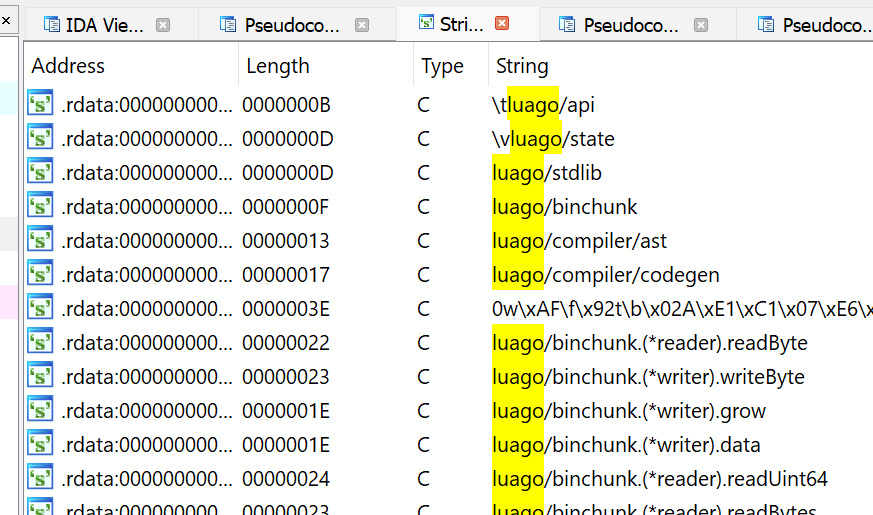

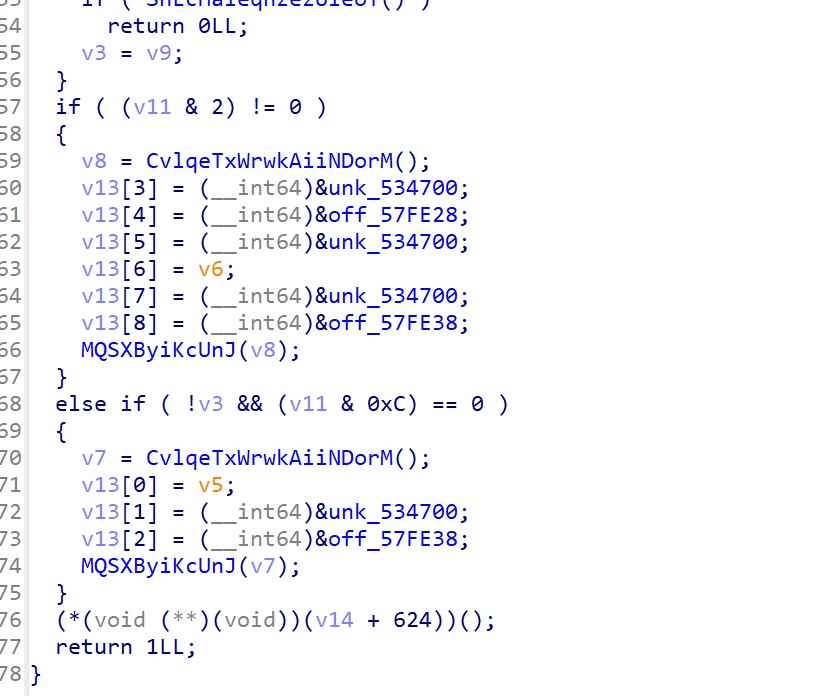
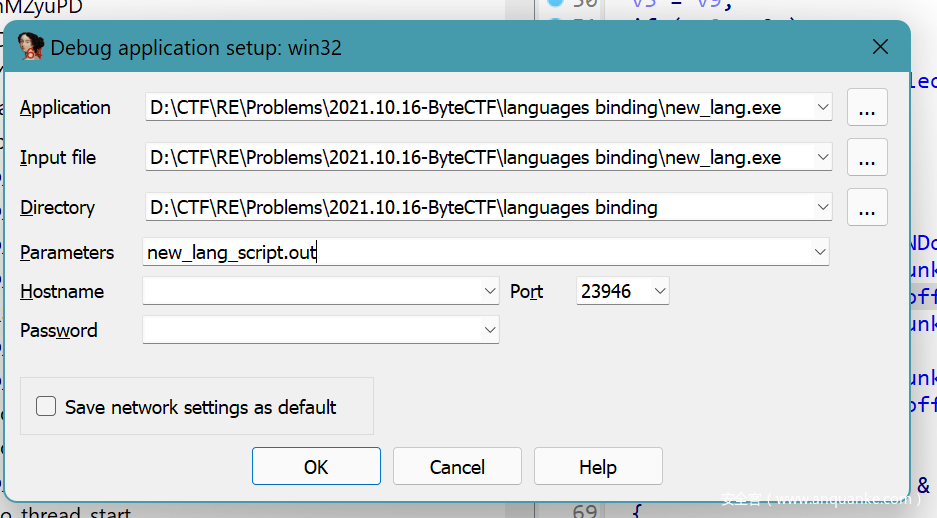
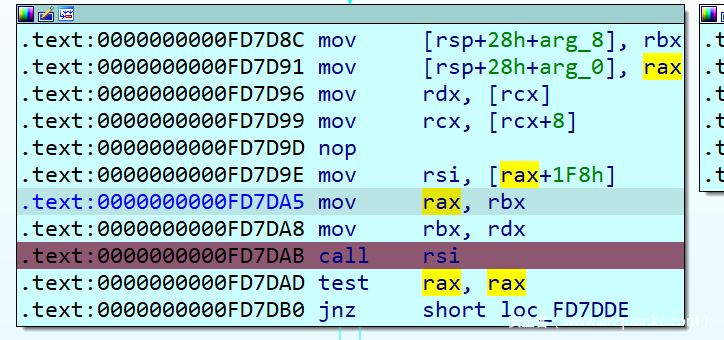
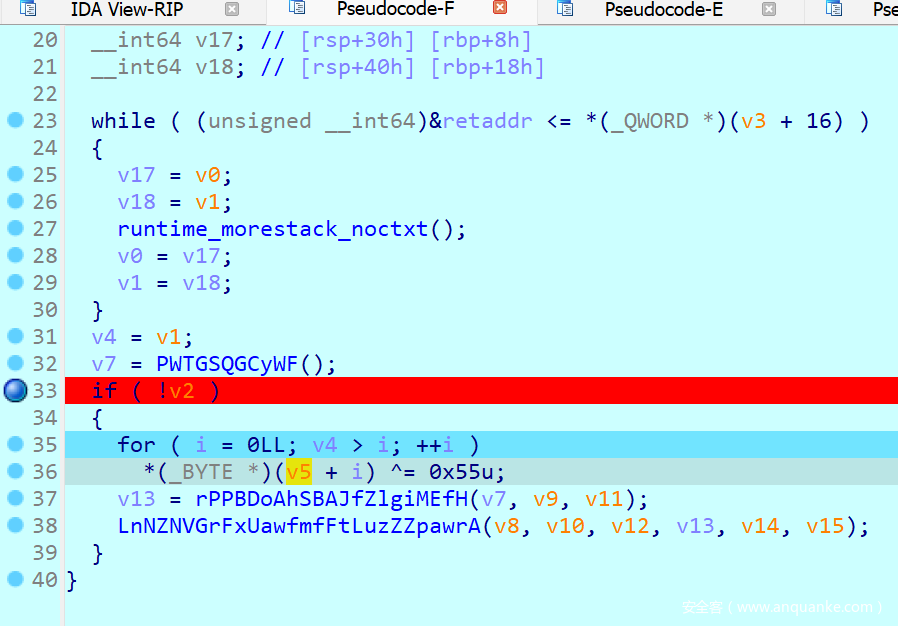
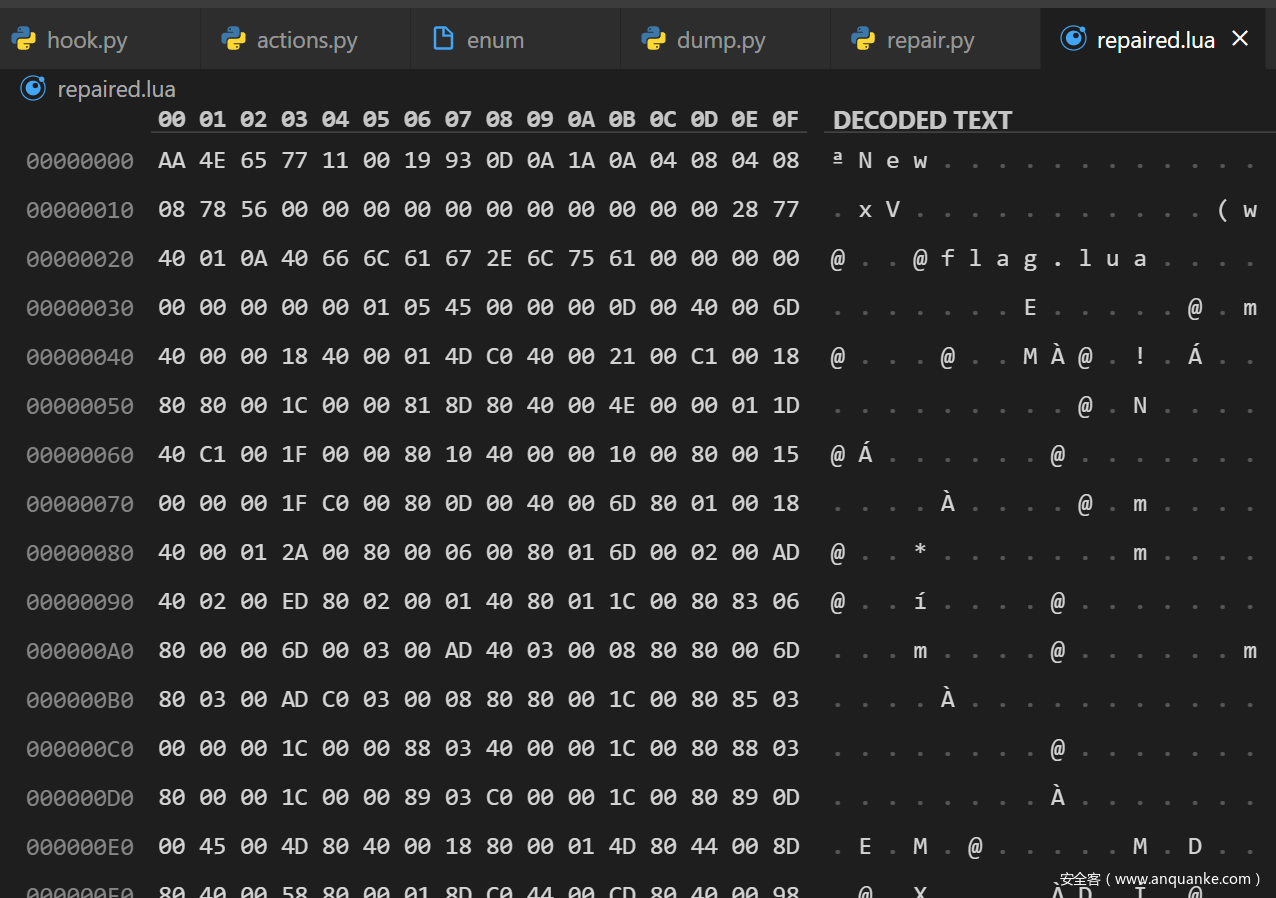
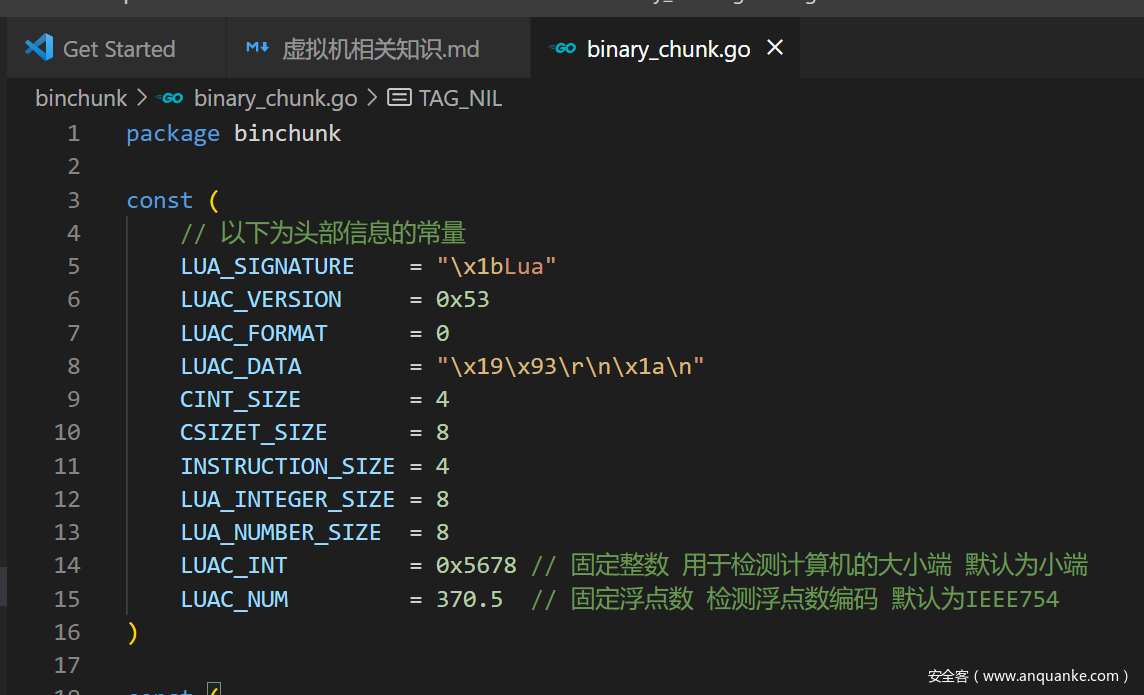
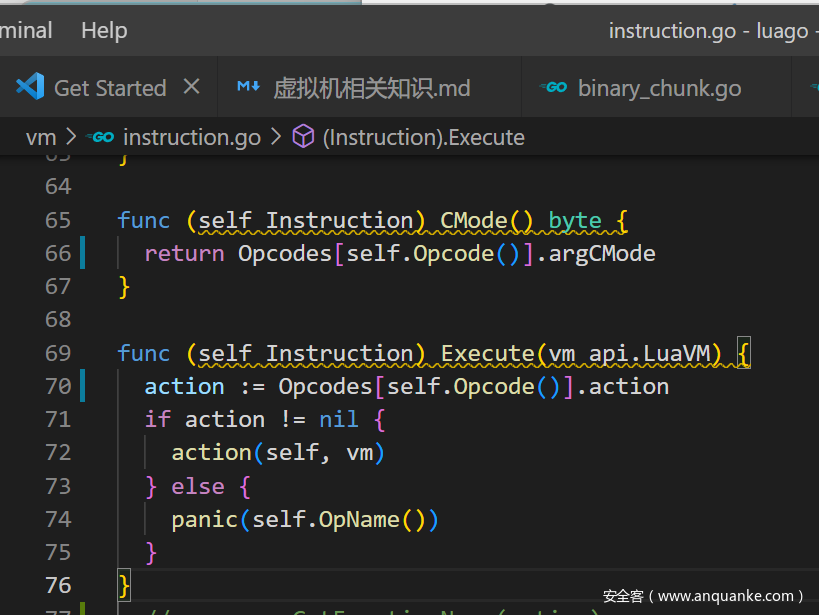
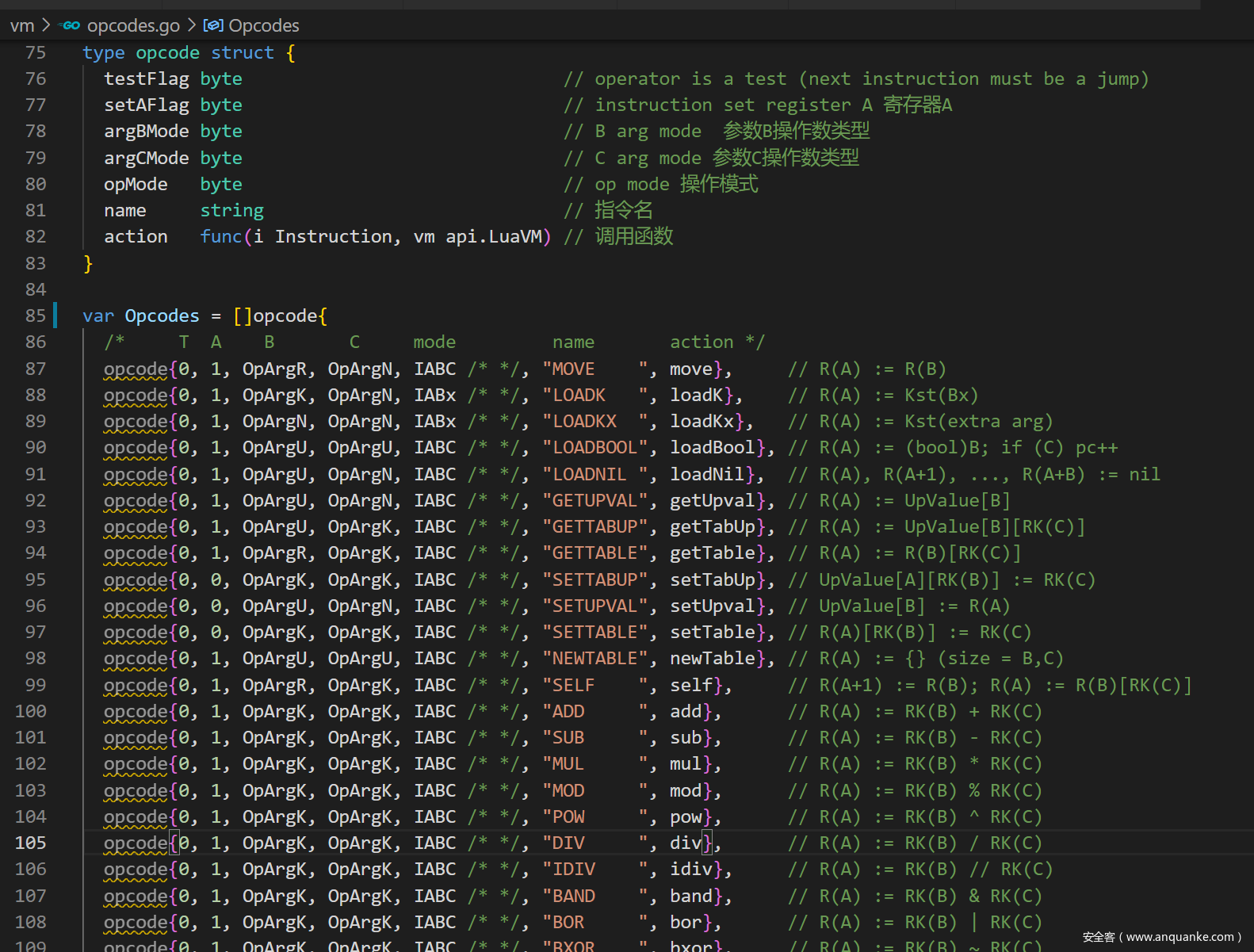
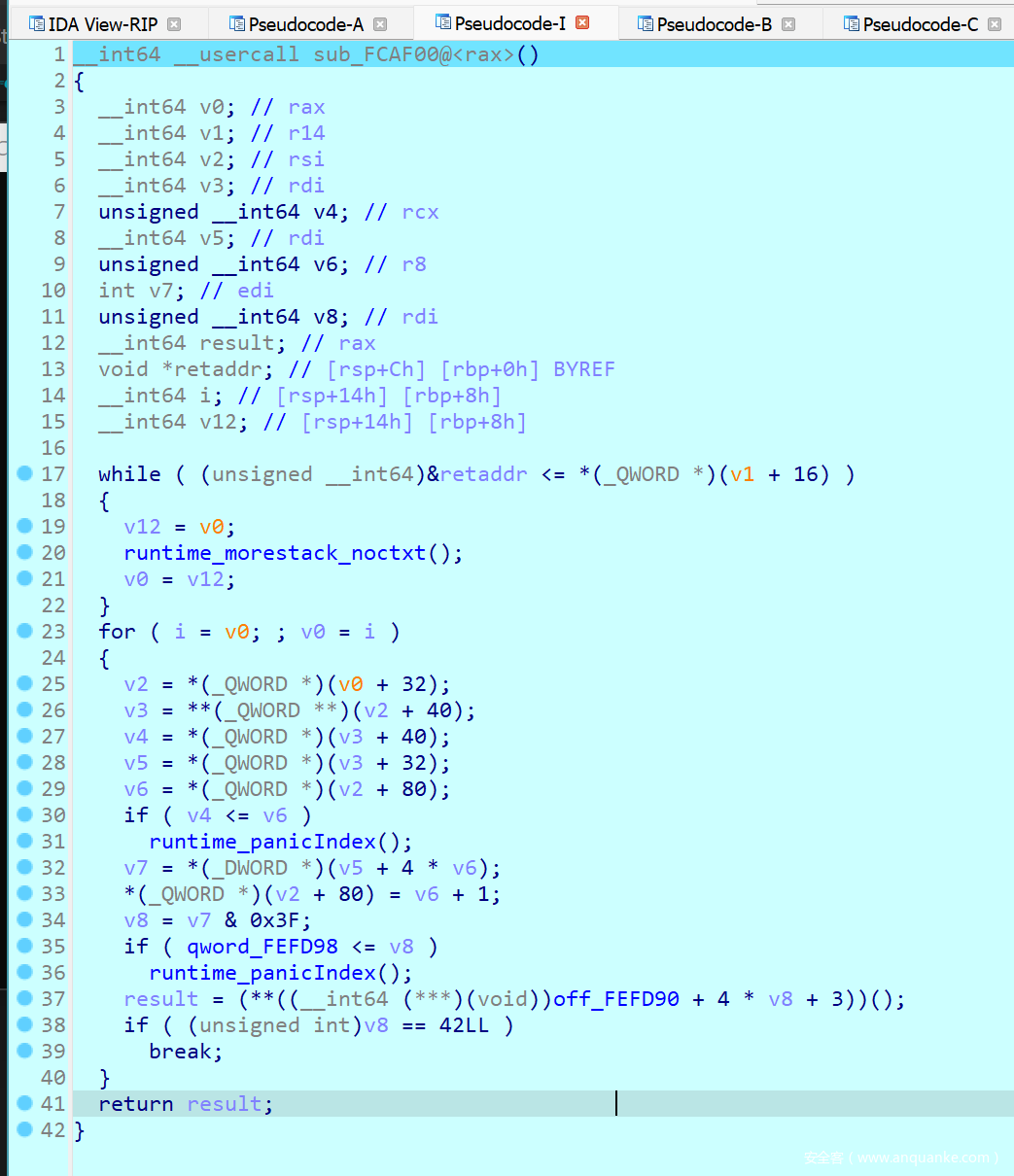
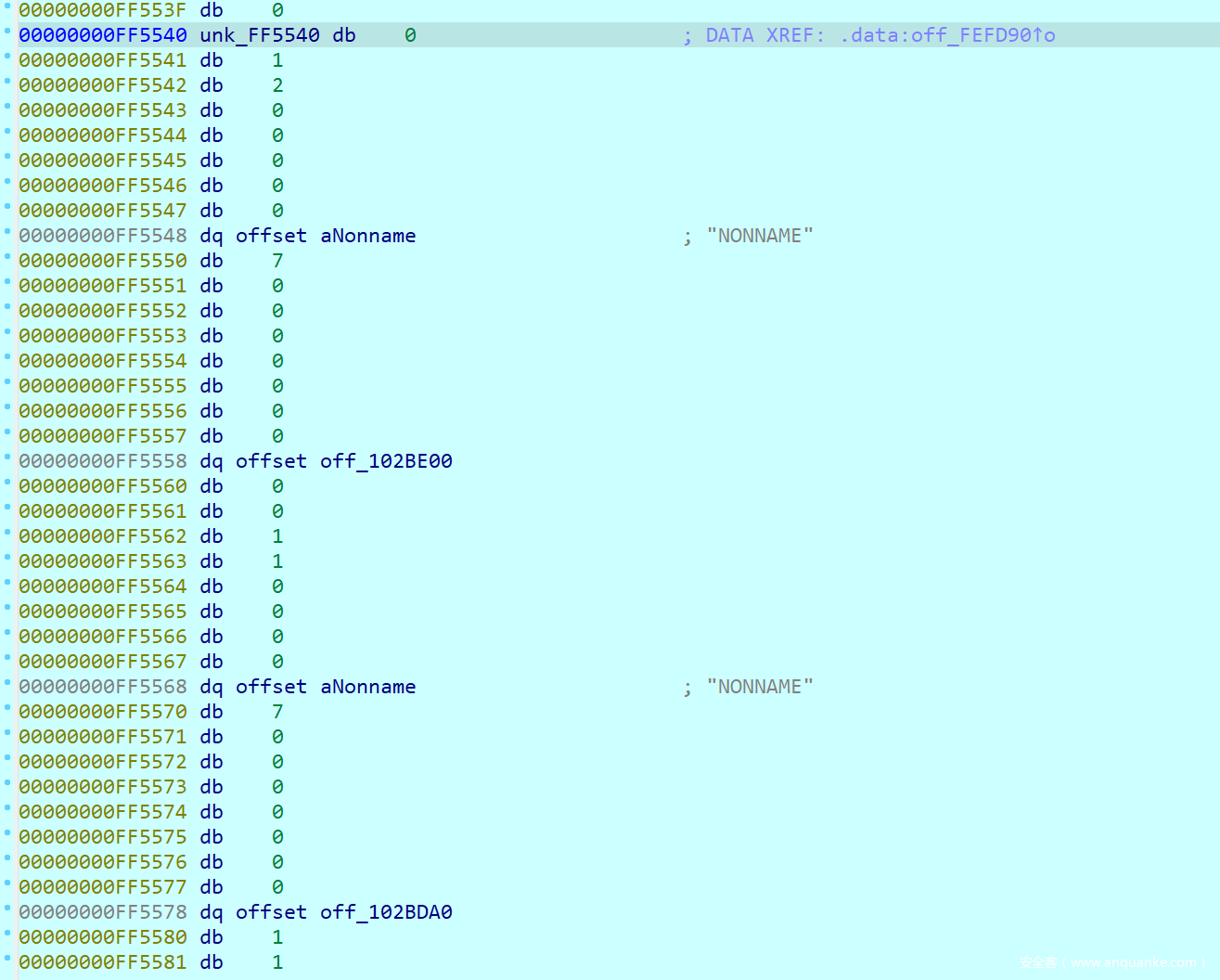

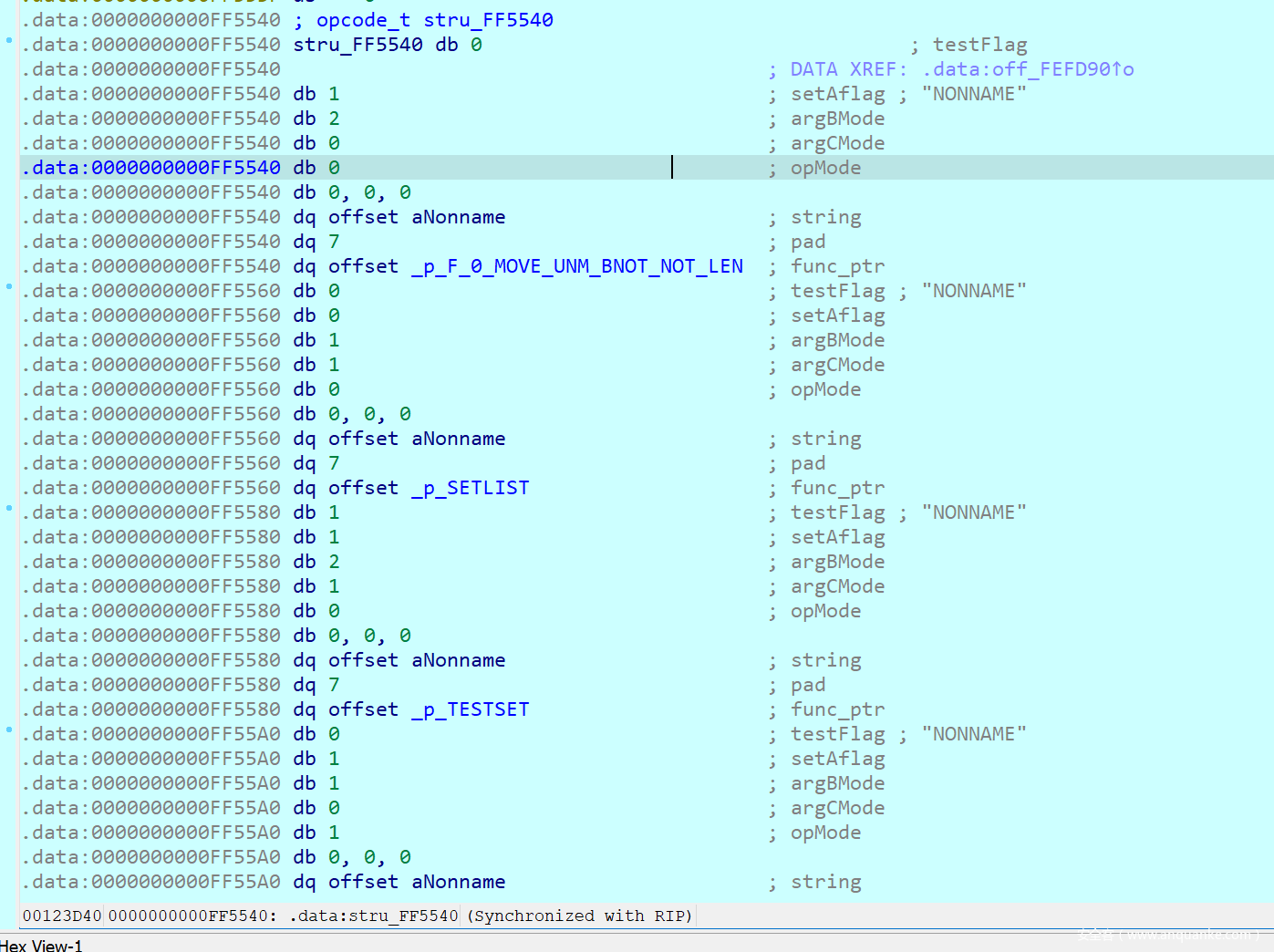
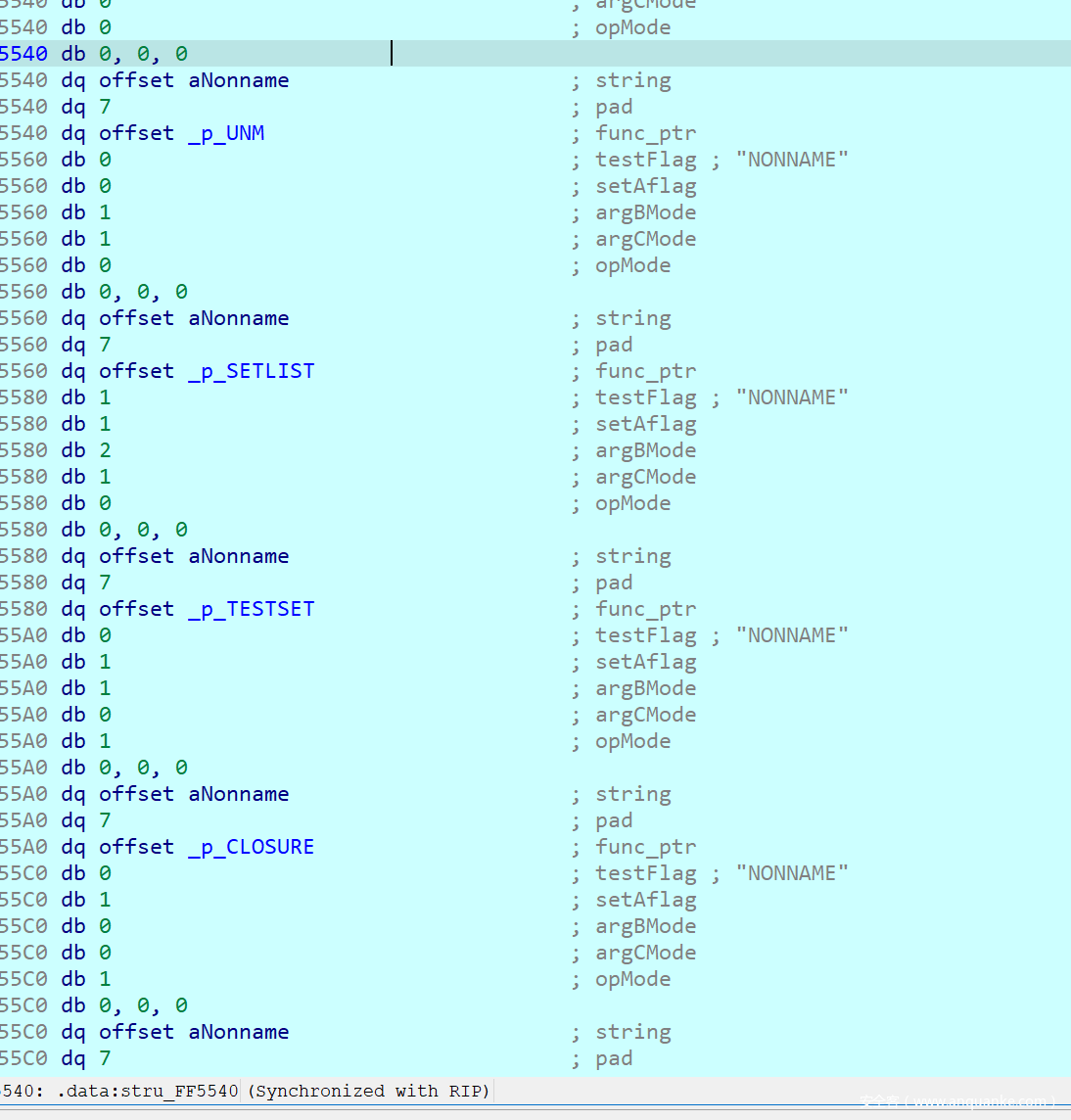



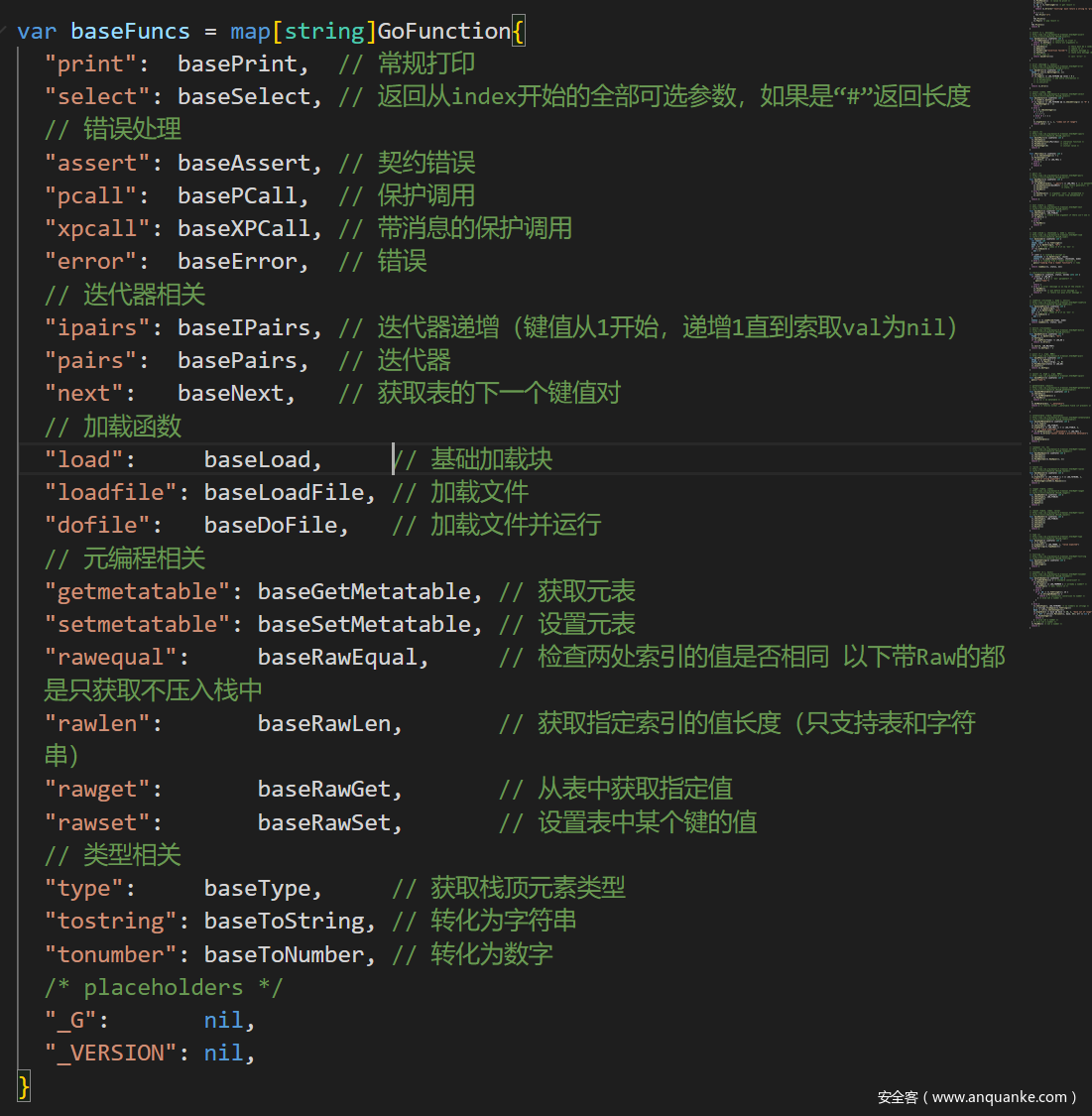
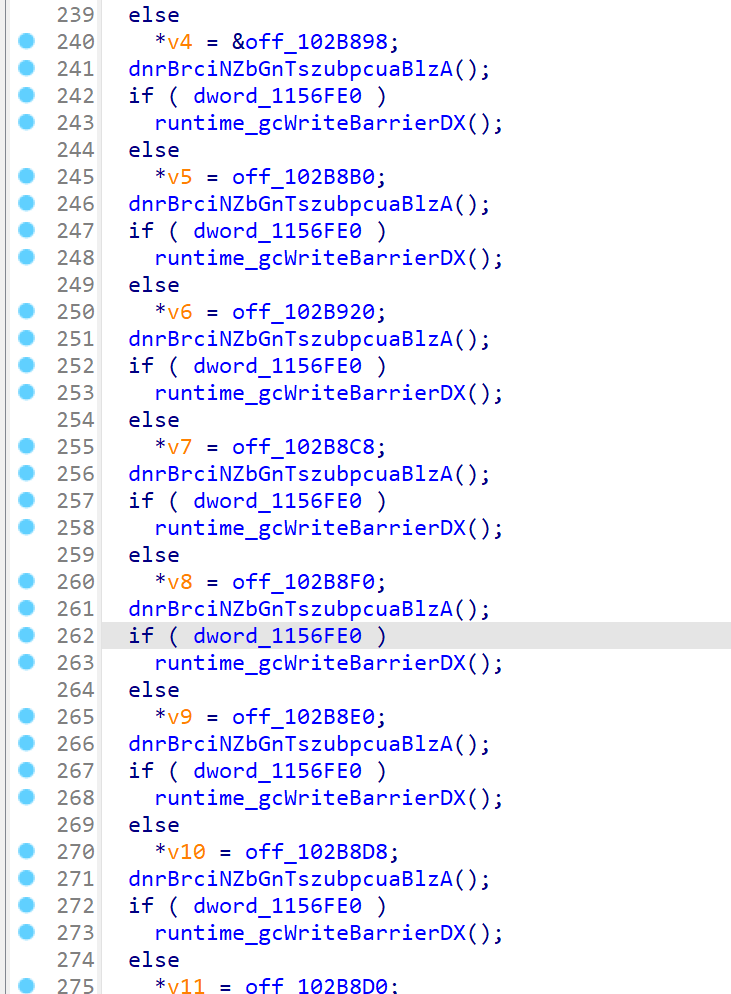

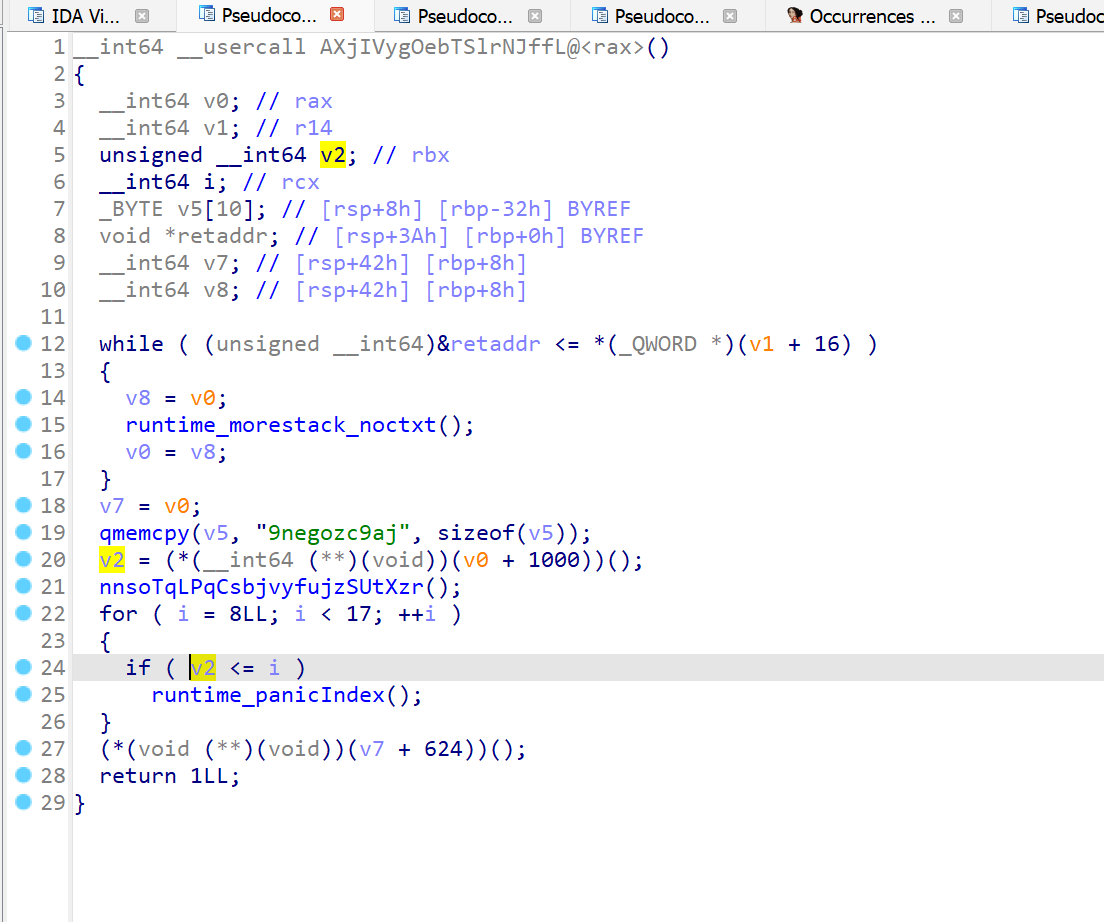
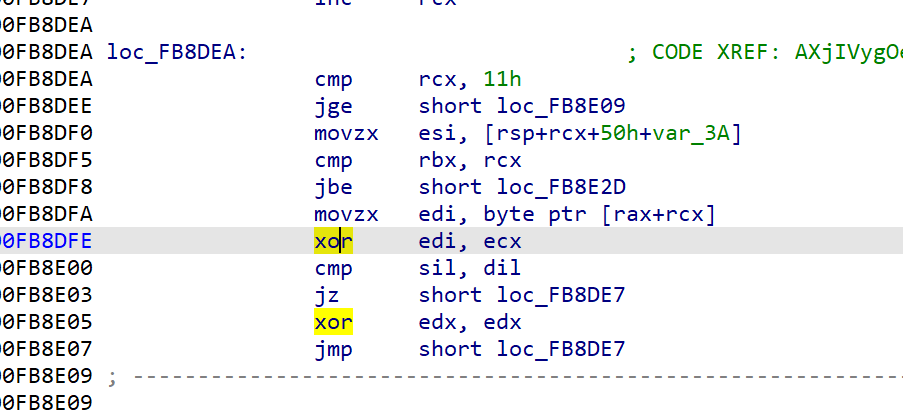







发表评论
您还未登录,请先登录。
登录